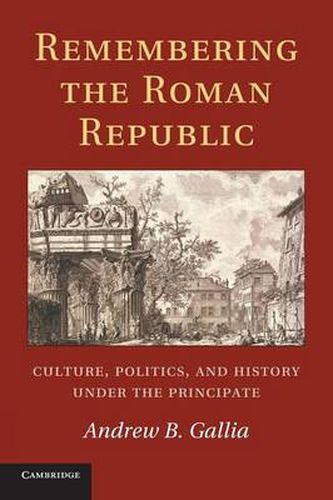Readings Newsletter
Become a Readings Member to make your shopping experience even easier.
Sign in or sign up for free!
You’re not far away from qualifying for FREE standard shipping within Australia
You’ve qualified for FREE standard shipping within Australia
The cart is loading…






The Roman Principate was defined by its embrace of a central paradox - the ruling order strenuously advertised continuity with the past, even as the emperor’s monarchical power represented a fundamental breach with the traditions of the ‘free’ Republic it had replaced. Drawing on the evidence of coins, public monuments and literary texts ranging from Tacitus and Pliny the Younger to Frontinus and Silius Italicus, this study traces a series of six crucial moments in which the memory of the Republic intruded upon Roman public discourse in the period from the fall of Nero to the height of Trajan’s power. During these years, remembering the Republic was anything but a remote and antiquarian undertaking. It was instead a vital cultural process, through which emperors and their subjects attempted to navigate many of the fault lines that ran through Roman Imperial culture.
$9.00 standard shipping within Australia
FREE standard shipping within Australia for orders over $100.00
Express & International shipping calculated at checkout
The Roman Principate was defined by its embrace of a central paradox - the ruling order strenuously advertised continuity with the past, even as the emperor’s monarchical power represented a fundamental breach with the traditions of the ‘free’ Republic it had replaced. Drawing on the evidence of coins, public monuments and literary texts ranging from Tacitus and Pliny the Younger to Frontinus and Silius Italicus, this study traces a series of six crucial moments in which the memory of the Republic intruded upon Roman public discourse in the period from the fall of Nero to the height of Trajan’s power. During these years, remembering the Republic was anything but a remote and antiquarian undertaking. It was instead a vital cultural process, through which emperors and their subjects attempted to navigate many of the fault lines that ran through Roman Imperial culture.